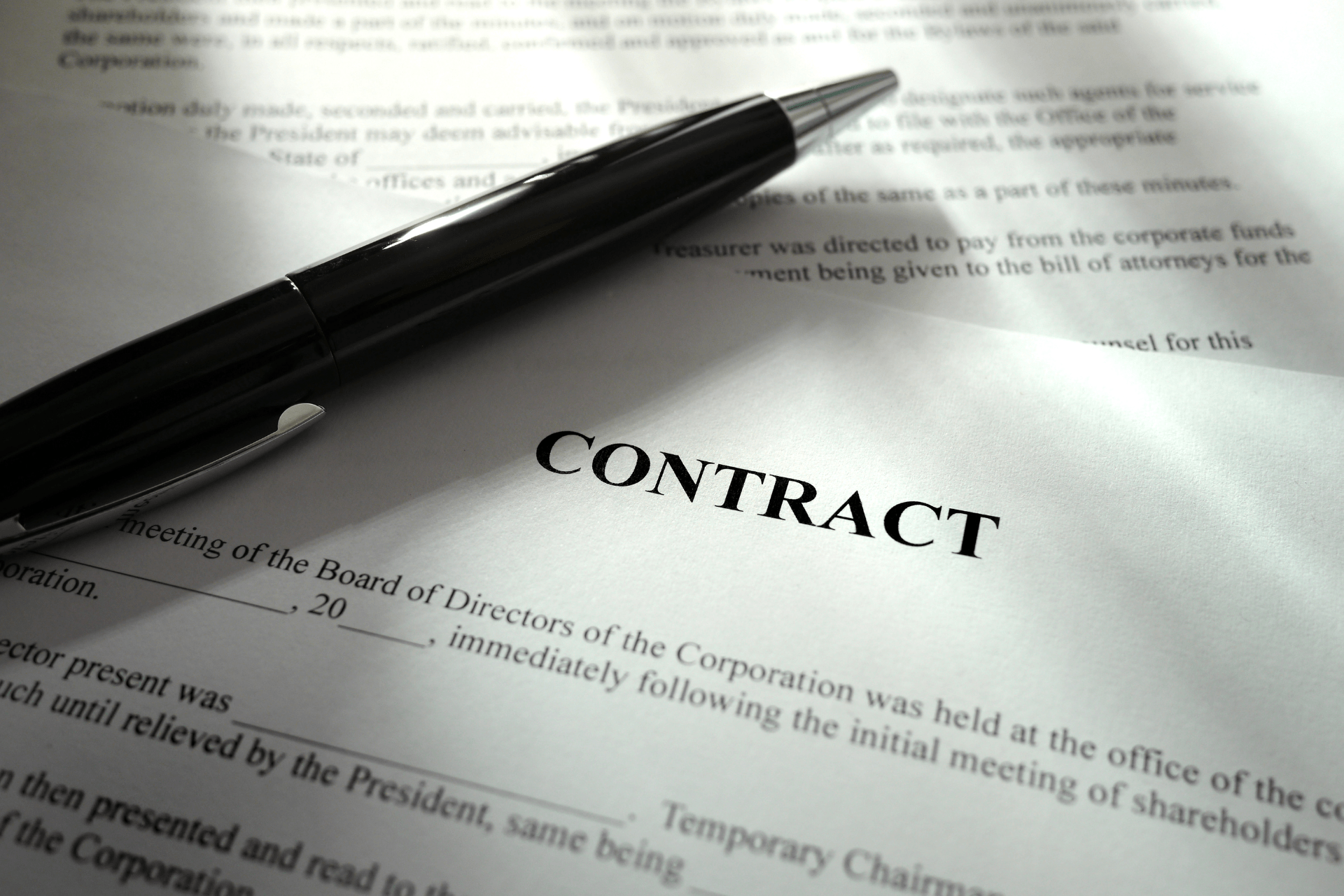How to Define a Bilateral Contract—and When to Use Them
You’re about to sign a deal—payment terms, delivery dates, shared responsibilities—it all sounds good. But without the right language, that handshake agreement could fall apart fast.
You need to define a bilateral contract clearly. When both sides make promises, you need a legal structure that holds everyone accountable. Otherwise, you’re risking confusion, delays, or worse.
What Is a Bilateral Contract?
A bilateral contract is a legally binding agreement where both parties make promises to each other. Each side agrees to do something, and that mutual commitment forms the basis of the contract. If either party fails to meet those obligations, it could result in a breach of contract, opening the door to costly legal action.
For example, you agree to pay a supplier for delivering goods, and the supplier agrees to deliver those goods by a certain date. Your promise to pay and their promise to deliver are what make it bilateral.
This is a common type of business agreement. If both sides are expected to follow through on specific terms, you're dealing with a bilateral contract—even if it's written in everyday language.
Bilateral vs. Unilateral Contracts
The key difference between bilateral and unilateral contracts comes down to who’s making promises. In a bilateral contract, both parties agree to do something. Each side makes a promise the other can rely on.
In a unilateral contract, only one party makes a promise, and the other party accepts by performing an action. For example, offering a reward for a lost pet is unilateral—you’re only obligated to pay if someone actually finds and returns the pet.
A unilateral contract, unlike a bilateral one, involves only one party making a commitment. It’s a different type of contract with different risks and responsibilities. Bilateral contracts are far more common because most deals require action from both sides.
How a Bilateral Contract Works
A bilateral contract works by creating a mutual obligation. Each party agrees to perform something specific, and the contract becomes enforceable once both sides accept the terms. If one party fails to follow through, the other can take legal action.
Let’s say you hire a marketing agency. You promise to pay them $5,000, and they promise to deliver a campaign within 30 days. Once both sides agree to those terms (typically in writing), it’s a bilateral contract.
Characteristics of a Bilateral Agreement
To be valid, a bilateral agreement needs more than just good intentions. Here are the core elements that make it legally enforceable:
Mutual Promises
Each party makes a commitment. One side agrees to perform a task or deliver a product, and the other agrees to provide payment, goods, or services in return. These promises are the foundation of a bilateral contract.
Offer and Acceptance
One party presents terms, and the other agrees. This can happen in writing, over the phone, or even verbally, as long as both parties clearly understand and accept what’s being offered. Certain contracts, though, must be in writing to be enforceable, and it’s advisable to always seek legal consent when entering into a contractual agreement.
Capacity to Contract
Both parties must be legally able to enter into a contract. That means they’re of legal age, mentally competent, and not under duress or coercion at the time of agreement.
Enforceability
The contract must involve legal subject matter and be detailed enough to enforce in court. If either party fails to meet its obligations, the other has the right to seek legal remedies.
10 Examples of Bilateral Contracts
Bilateral contracts show up everywhere in business. If both sides agree to take action, you’re likely looking at one. Here are ten common examples:
1. Sales Contracts: You agree to pay a vendor, and they agree to deliver products or services. Both sides are bound once the terms are accepted.
2. Service Contracts: Whether it’s IT support, marketing, or cleaning services, both parties commit—one to perform the service, the other to pay for it.
3. Employment Contracts: You offer a job, and the employee agrees to perform specific duties in exchange for wages and benefits.
4. Lease Agreements: The landlord provides space, and the tenant agrees to pay rent. Terms often include duration, responsibilities, and use of the property.
5. Licensing Agreements: A business agrees to pay for the right to use another’s intellectual property, like software or trademarks, under specific conditions.
6. Purchase and Sale Agreements: Common in real estate and large asset deals, these contracts commit both parties to specific terms for buying or selling property or goods.
7. Supply Contracts: You agree to purchase a set quantity of goods, and your supplier agrees to deliver them on schedule, usually under fixed pricing.
8. Construction Contracts: Builders agree to complete a project, and the client agrees to pay based on milestones, timelines, and deliverables.
9. Non-Disclosure Agreements (NDAs): Each party agrees not to share confidential information. These are often mutual, especially when both sides are disclosing sensitive details.
10. Loan Agreements: A lender provides funds, and the borrower agrees to repay under agreed terms—interest, timing, and conditions are clearly defined.
When to Use Bilateral Contracts
Not every business agreement needs to be formal, but when there’s real risk or value on the line, a bilateral contract offers security and clarity. Here’s when they’re especially useful:
A clearly defined scope of work calls for a bilateral contract.
If you and the other party both have specific responsibilities—like deliverables, deadlines, or services—a bilateral contract keeps everything clear and enforceable.
Long-term agreements benefit from written mutual commitments.
When you’re entering into a relationship that will last months or years, a formal agreement ensures both sides understand their obligations from day one.
Significant financial investments should be backed by a contract.
Whether you’re spending a lot or expecting to receive a large payment, documenting the terms helps protect your investment and avoid misunderstandings.
Confidential information deserves clear protection on both sides.
If both parties will share sensitive data or trade secrets, a bilateral contract helps define how that information should be handled and what happens if it’s misused.
When there’s risk, a contract helps keep everyone accountable.
When failure to perform could hurt your business—financially, legally, or reputationally—a bilateral contract helps reduce your exposure by making responsibilities crystal clear.
Define Bilateral Contract: Frequently Asked Questions
What is the legal definition of bilateral?
In legal terms, "bilateral" refers to a contract where both parties make binding promises to perform specific obligations. Each side agrees to do something, such as deliver a service or pay money, and those promises are enforceable under the law.
Are bilateral agreements legally binding?
Yes, bilateral agreements are legally binding if they include offer and acceptance, mutual consideration, legal capacity, and a lawful purpose. Once both parties agree to the terms, each can be held accountable in court if the other fails to perform. Keep in mind, though, that many bilateral contracts must be in writing to be enforceable.
What makes a bilateral contract valid?
A bilateral contract is valid when it includes mutual promises, clear terms, competent parties, and an agreement that serves a legal purpose. All of these elements must be present for the contract to be enforceable.
Can a bilateral contract be verbal?
The short answer? It depends. There are specific laws (like the Statute of Frauds) that require certain contracts to be in writing — for example, if it involves real estate, can’t be performed within a year, or falls into another category that must be written.
The challenge with oral contracts isn’t their legality, but the difficulty of proving the terms if there’s a dispute. That’s why it’s always smart to put agreements in writing, even when not legally required.
Work with a Business Attorney to Create a Bilateral Contract
Strong contracts protect your business. If you’re making a deal, don’t go in unprotected. Let The Retail Law Group help you draft clear, enforceable agreements. Contact us today to get started.




